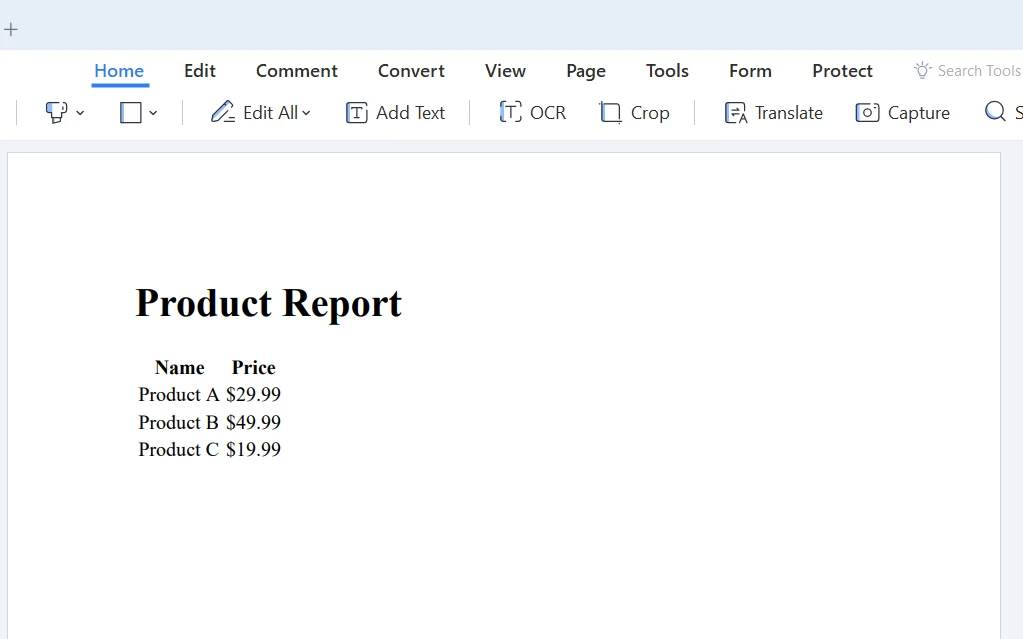C# For Each(开发者如何使用)
在本教程中,我们将涵盖"C# foreach"循环,这是开发人员的重要工具。 foreach循环简化了遍历集合的过程,使得对每个项目执行操作变得更容易,而无需担心底层细节。 我们将讨论foreach的重要性、它的使用案例,以及如何在你的C#代码中实现它。
介绍foreach循环
foreach循环是开发人员以简洁和易读的方式遍历集合的强大工具。 它简化了代码并减少了错误的可能性,因为不需要手动管理集合项目的索引或数量。 在可读性和简单性方面,foreach循环往往比传统的for循环更受欢迎。
foreach的使用案例包括:
- 汇总集合中的值
- 在集合中搜索项目
- 修改集合中的元素
- 对集合中的每个元素执行操作
了解集合
在C#中有不同类型的集合用于将一组项目存储在单个对象中。 这些包括数组、列表、字典等。 foreach循环是一个有用的工具,可以与实现了IEnumerable或IEnumerable接口的任何集合一起使用。
一些常见的集合类型包括:
- 数组:具有相同数据类型的固定大小的元素集合。
- 列表:具有相同数据类型的动态元素集合。
- 字典:键值对集合,其中每个键都是唯一的。
System.Collections.Generic命名空间包含处理集合的各种类型。
在C#中实现foreach语句
现在我们对集合和foreach循环有了基本的了解,让我们深入了解语法,看看它在C#中如何工作。
foreach循环的语法
foreach (variableType variableName in collection)
{
// Code to execute for each item
}foreach (variableType variableName in collection)
{
// Code to execute for each item
}这里,variableType代表集合中项目的数据类型,variableName是在循环中给予当前项目的名称(循环变量),而collection是你要遍历的集合。
示例
让我们来看一个例子,我们有一个整数列表,我们想找到列表中所有元素的总和。
using System;
using System.Collections.Generic;
class Program
{
static void Main()
{
// Create a list of integers
List<int> numbers = new List<int> { 1, 2, 3, 4, 5 };
// Initialize a variable to store the sum
int sum = 0;
// Iterate through the list using foreach loop
foreach (int number in numbers)
{
sum += number;
}
// Print the sum
Console.WriteLine("The sum of the elements is: " + sum);
}
}using System;
using System.Collections.Generic;
class Program
{
static void Main()
{
// Create a list of integers
List<int> numbers = new List<int> { 1, 2, 3, 4, 5 };
// Initialize a variable to store the sum
int sum = 0;
// Iterate through the list using foreach loop
foreach (int number in numbers)
{
sum += number;
}
// Print the sum
Console.WriteLine("The sum of the elements is: " + sum);
}
}输出
当循环执行时,将产生以下输出。
The sum of the elements is: 15在上面的例子中,我们首先创建一个名为numbers的整数列表,并初始化一个变量sum以存储元素的总和。 然后,我们使用foreach循环遍历列表,并将每个元素的值加到sum中。 最后,我们将总和打印到控制台。 此方法还可以适配以类似方式打印或操作其他集合。
变体和最佳实践
现在我们对如何使用foreach循环有了一定的了解,让我们讨论一些变体和最佳实践。
只读迭代: foreach循环最适合只读迭代,因为在迭代过程中修改集合可能会导致意外结果或运行时错误。 如果你需要在迭代过程中修改集合,考虑使用传统的for循环或创建一个具有所需修改的新集合。
使用var关键字:与其显式指定集合中元素的数据类型,不如使用var关键字让编译器推断数据类型。 这可以使代码更简洁和更易于维护。
例:
foreach (var number in numbers)
{
Console.WriteLine(number);
}foreach (var number in numbers)
{
Console.WriteLine(number);
}遍历字典:使用foreach循环遍历字典时,你需要处理KeyValuePair结构。 此结构表示字典中的键值对。
例:
Dictionary<string, int> ageDictionary = new Dictionary<string, int>
{
{ "Alice", 30 },
{ "Bob", 25 },
{ "Charlie", 22 }
};
foreach (KeyValuePair<string, int> entry in ageDictionary)
{
Console.WriteLine($"{entry.Key} is {entry.Value} years old.");
}Dictionary<string, int> ageDictionary = new Dictionary<string, int>
{
{ "Alice", 30 },
{ "Bob", 25 },
{ "Charlie", 22 }
};
foreach (KeyValuePair<string, int> entry in ageDictionary)
{
Console.WriteLine($"{entry.Key} is {entry.Value} years old.");
}LINQ和foreach:LINQ(语言集成查询)是C#中的强大功能,可让你以更具声明性的方式查询和操作数据。 你可以使用LINQ与foreach循环结合,以创建更具表达性和效率的代码。
例:
using System;
using System.Collections.Generic;
using System.Linq;
class Program
{
static void Main()
{
List<int> numbers = new List<int> { 1, 2, 3, 4, 5 };
// Use LINQ to filter out even numbers
var evenNumbers = numbers.Where(n => n % 2 == 0);
// Iterate through the even numbers using foreach loop
foreach (var number in evenNumbers)
{
Console.WriteLine(number);
}
}
}using System;
using System.Collections.Generic;
using System.Linq;
class Program
{
static void Main()
{
List<int> numbers = new List<int> { 1, 2, 3, 4, 5 };
// Use LINQ to filter out even numbers
var evenNumbers = numbers.Where(n => n % 2 == 0);
// Iterate through the even numbers using foreach loop
foreach (var number in evenNumbers)
{
Console.WriteLine(number);
}
}
}将IronPDF功能添加到C# foreach教程中
在本节中,我们将通过引入IronPDF来扩展我们关于"C# foreach"循环的教程,这是一款流行的用于处理C#中的PDF文件的库。 我们将展示如何将foreach循环与IronPDF结合使用,基于数据集合生成PDF报告。
IronPDF介绍
IronPDF是一个用于在C#中创建、编辑和提取PDF文件内容的强大库。 它提供了易于使用的API来处理PDF文档,是开发者希望在应用中添加PDF功能的绝佳选择。
IronPDF的一些关键特性包括:
- 从HTML、URL和图像生成PDF
- 编辑现有的PDF文档
- 从PDF中提取文本和图像
- 向PDF添加注释、表单字段和加密
安装 IronPDF。
要开始使用IronPDF,你需要安装IronPDF NuGet包。 你可以按照IronPDF文档中的说明进行操作。
使用IronPDF和foreach生成PDF报告
在这个例子中,我们将使用IronPDF库和foreach循环,创建一个包含产品名和价格的PDF报告。
首先,让我们创建一个简单的Product类来表示产品:
public class Product
{
public string Name { get; set; }
public decimal Price { get; set; }
public Product(string name, decimal price)
{
Name = name;
Price = price;
}
}public class Product
{
public string Name { get; set; }
public decimal Price { get; set; }
public Product(string name, decimal price)
{
Name = name;
Price = price;
}
}接下来,让我们创建一个Product对象的列表来生成PDF报告:
List<Product> products = new List<Product>
{
new Product("Product A", 29.99m),
new Product("Product B", 49.99m),
new Product("Product C", 19.99m),
};List<Product> products = new List<Product>
{
new Product("Product A", 29.99m),
new Product("Product B", 49.99m),
new Product("Product C", 19.99m),
};现在,我们可以使用IronPDF和foreach循环来生成包含产品信息的PDF报告:
using System;
using System.Collections.Generic;
using IronPdf;
class Program
{
static void Main()
{
// Create a list of products
List<Product> products = new List<Product>
{
new Product("Product A", 29.99m),
new Product("Product B", 49.99m),
new Product("Product C", 19.99m),
};
// Initialize an HTML string to store the report content
string htmlReport = "<table><tr><th>Product Name</th><th>Price</th></tr>";
// Iterate through the list of products using foreach loop
foreach (var product in products)
{
// Add product information to the HTML report
htmlReport += $"<tr><td>{product.Name}</td><td>${product.Price}</td></tr>";
}
// Close the table tag in the HTML report
htmlReport += "</table>";
// Create a new instance of the HtmlToPdf class
var htmlToPdf = new ChromePdfRenderer();
// Generate the PDF from the HTML report
var PDF = htmlToPdf.RenderHtmlAsPdf(htmlReport);
// Save the PDF to a file
PDF.SaveAs("ProductReport.PDF");
// Inform the user that the PDF has been generated
Console.WriteLine("ProductReport.PDF has been generated.");
}
}using System;
using System.Collections.Generic;
using IronPdf;
class Program
{
static void Main()
{
// Create a list of products
List<Product> products = new List<Product>
{
new Product("Product A", 29.99m),
new Product("Product B", 49.99m),
new Product("Product C", 19.99m),
};
// Initialize an HTML string to store the report content
string htmlReport = "<table><tr><th>Product Name</th><th>Price</th></tr>";
// Iterate through the list of products using foreach loop
foreach (var product in products)
{
// Add product information to the HTML report
htmlReport += $"<tr><td>{product.Name}</td><td>${product.Price}</td></tr>";
}
// Close the table tag in the HTML report
htmlReport += "</table>";
// Create a new instance of the HtmlToPdf class
var htmlToPdf = new ChromePdfRenderer();
// Generate the PDF from the HTML report
var PDF = htmlToPdf.RenderHtmlAsPdf(htmlReport);
// Save the PDF to a file
PDF.SaveAs("ProductReport.PDF");
// Inform the user that the PDF has been generated
Console.WriteLine("ProductReport.PDF has been generated.");
}
}
结论
在本教程中,我们探讨了"C# foreach"循环的基础知识、重要性、使用案例以及如何在代码中实现它。 我们还介绍了IronPDF,一个用于处理C#中PDF文件的强大库,并展示了如何将foreach循环与IronPDF结合使用,基于数据集合生成PDF报告。
继续学习和提升你的技能,你将很快能够利用foreach循环和其他C#功能的全部潜力,创建强大且高效的应用。 IronPDF提供了免费试用以测试库。 如果你决定购买,IronPDF许可证的起价为$799。
常见问题解答
什么是 C# foreach 循环?
C# foreach 循环是一种编程结构,简化了通过数组、列表和字典等集合进行迭代的过程。它允许开发人员以简洁且可读的方式对集合中的每个项目执行操作,而无需管理索引或计数。
如何在 C# 中使用 foreach 循环创建 PDF 报告?
您可以结合使用 foreach 循环和 IronPDF 来生成 PDF 报告。通过迭代数据集合(如产品列表),可以动态创建 HTML 报告字符串,然后使用 IronPDF 的 ChromePdfRenderer 将其转换为 PDF。
C# foreach 循环的使用场景是什么?
foreach 循环的常见使用场景包括对集合中的值进行求和、搜索项目、修改元素以及对集合的每个元素执行操作。
C# 中的 foreach 循环与 for 循环有什么不同?
foreach 循环因其可读性和简洁性而受到偏爱。与 for 循环不同,它不需要手动管理集合的索引或计数。foreach 循环最适合用于只读迭代。
如何在 foreach 循环中使用 var 关键字?
您可以在 foreach 循环中使用 var 关键字,让编译器推断集合中元素的数据类型,使代码更加简洁易于维护。
在使用 foreach 循环时可以修改集合吗?
foreach 循环不适合在迭代过程中修改集合,因为这可能导致运行时错误。如果需要修改,请考虑使用 for 循环或创建新的修改后的集合。
如何在 C# 中使用 foreach 循环处理字典迭代?
在 C# 中,可以通过利用 KeyValuePair 结构同时高效访问键和值来使用 foreach 循环迭代字典。
foreach 循环可以迭代哪些类型的集合?
foreach 循环可以遍历任何实现了 IEnumerable 或 IEnumerable 接口的集合。这包括 C# 中的数组、列表、字典以及其他集合类型。
C# foreach 循环的语法是什么?
C# foreach 循环的语法是:foreach (variableType variableName in collection) { // 对每个项目执行的代码 },其中 variableType 是数据类型,variableName 是循环变量,而 collection 是要迭代的集合。
如何在 C# 项目中安装 PDF 库?
可以通过添加 IronPDF NuGet 包来在 C# 项目中安装 IronPDF。安装说明可以在 IronPDF 文档中找到。




















